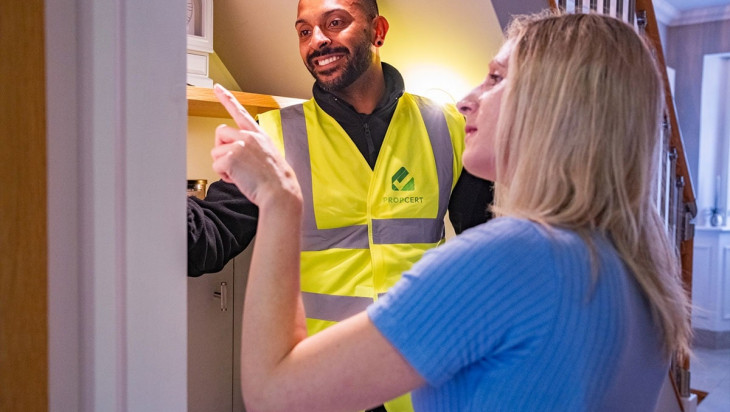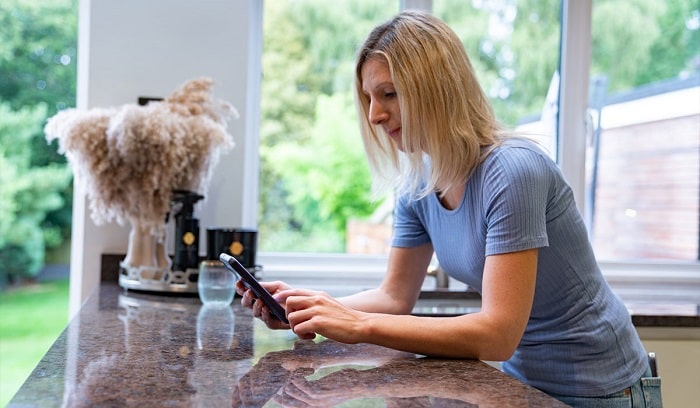
What temperature should a house be? Apparently, it looks like a simple question, but the answer may not be straightforward, as it involves multiple considerations. Maintaining a home at the appropriate temperature is not just about comfort; it also requires thoughtful consideration of health, energy costs, and the building's energy efficiency. It also depends heavily on weather conditions.
However, comfort remains the core consideration in keeping a home at a perfectly suitable temperature, especially in Countries like the UK, where the weather can be extremely cold in winter and unexpectedly hot in summer. This fluctuation in weather makes it quite tricky to maintain the room temperature within a comfortable range while keeping in mind a variety of other important considerations, such as the age and health conditions of the family members.
That means you cannot keep your home at a predetermined temperature year-round; you need to adjust as the weather changes. Similarly, not every part of a home can be kept at the same temperature. While bedrooms can be kept at relatively lower temperatures, a living room needs a higher temperature to maintain warmth.
Keep reading this blog to learn everything you need to know about the ideal temperature for your home.

Maintaining a home at an appropriate temperature is highly important, as it directly affects the occupants' health. Apart from it, maintaining the home at a correct temperature also has other implications.
Here is a summary of different factors that make it important to keep a home at the correct temperature:
Health should always be the priority. Heating and maintaining the right temperature in a home's bedrooms and living areas is directly related to your family's health. While a cold internal environment can pose serious health issues, a higher temperature can be even more dangerous.
An incorrect temperature may lead to serious health issues as follows:
Variation in a home's internal temperature is directly related to energy efficiency and cost. Experts say that increasing indoor temperature by just 1 degree can increase the monthly energy bill by 10%. So, keeping your living room at 20°C rather than 18°C may result in a considerable increase in your annual energy costs.
The indoor temperature also affects the building itself. Too cold a temperature may cause condensation and dampness. Pipes may also freeze in such conditions. On the other hand, too high temperatures may cause cracks in roofs and walls. So, maintaining a proper indoor temperature can go a long way toward protecting your home's structure and other installations.
According to health experts and heating engineers, ideally, a UK home should be maintained at a temperature between 18°C and 21°C.
Here is a breakdown of the recommendations from different authorities:
Not every part of the home can be kept at the same temperature; each room has different requirements. Accordingly, the ideal temperature of different rooms and areas within a home is recommended as follows:
Some minor adjustments and variations may be required in different seasons, as well as for people of different age groups and with known medical conditions:
The internal temperature of a home can be efficiently maintained at the perfect degree, with prudent usage of various gadgets:
Maintaining a perfect internal temperature, especially during winter, is quite important. During the extremely cold season in the UK, heating a home is a basic requirement. It is directly associated with your family's health, especially the kids' and the elderly's. It is also crucial for those with known medical disabilities and vulnerabilities. So, keeping your home perfectly heated is something you cannot avoid.
But what is the perfect and correct temperature a home should be kept at is one of the most important questions. Generally, a home in winter can be maintained at a temperature ranging between 18°C and 21°C, based on various factors. You may need to make adjustments based on your requirements. Infants, young ones, and elderly people: you may adjust the temperature to a higher setting. The same applies to people with known medical problems.
Fill the required information to order a gas safety certificate instantly.
Are you curious about your Gas Safety Certificate? With these simple steps, learn how to check its status and ensure your peace of mind.
Find out why your boiler is vibrating loudly. Explore causes, troubleshooting tips, and the importance of prompt repairs for a quiet and efficient heating system at home.
Gas engineers perform a gas safety check to ensure your gas appliances are safe. Read to learn what more you can expect from the gas safety check.
Learn about the importance of gas safety certificates for landlords and the legal consequences of not having a valid certificate.
Know your tenant rights: How long can a UK landlord leave you without hot water? Stay informed, assert your rights.
Every landlord in the UK is legally bound to follow gas safety regulations as per the Gas Safety (Installations and Use) Regulations 1998.
Fill out the following enquiry form and we will contact you as soon as possible.